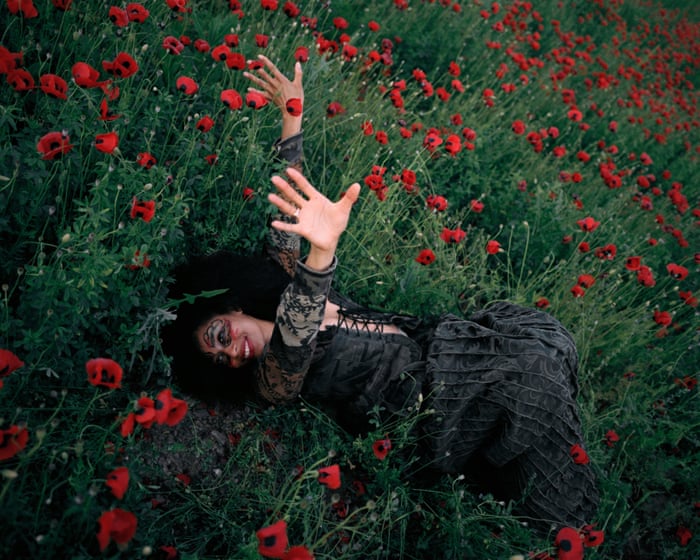In August, Paris becomes unusually quiet as crowds of residents head to the country’s beaches and coasts for their annual month of vacation. Businesses shut down, and the city almost comes to a standstill. For those who stay, there’s a timeless, quintessentially Parisian pursuit: searching for a warm, sunlit terrace to enjoy an evening apéritif.
Finding the perfect café seat outdoors might come from a casual stroll or a timely tip from a friend. This summer, however, a digital solution has gained popularity—a very French take on the old Apple slogan, “there’s an app for that.” It’s called Jveuxdusoleil, an app that tracks the sun’s path through the city’s maze of buildings to show exactly where you can find a sunny spot on a terrace for your coffee. It arrives at a delicate time for this classic Parisian pastime.
Jean-Charles Levenne created Jveuxdusoleil (“I want sun”) in 2020 as a side project to teach himself app development and solve a personal problem: finding shade on hot days and sunny spots for the Parisian ritual of after-work drinks.
Using sun-positioning algorithms and building-height data from the open-source map platform OpenStreetMap, Levenne’s app highlights sunlit terraces, while shaded ones fade from view. Users can suggest new locations or report inaccuracies—like a tree casting an unexpected shadow—making it a constantly evolving, community-driven tool. Although the technology works in other cities, most of the terraces listed are in Paris, where Levenne says it’s especially useful.
“This app works worldwide, but it was originally focused on Paris because there’s more need here than in other French cities,” he explained. “With narrow streets and tall buildings, it’s not always easy to find a sunny spot.”
Terraces act as observation posts for watching Paris—chairs are often placed on either side of small bistro tables, facing the street rather than each other, so diners can observe the world go by. Thanks to France’s lack of a tipping culture, there’s less pressure to turn tables quickly for profit. You can order a single espresso for under €2 and stay for hours, making the terrace a kind of second living room for Parisians.
Pierrick Bourgault, a photographer and journalist who has written about 20 books and released a documentary on French bistro culture, said Parisian terraces offer one of the most authentic windows into the city.
“The terrace is emblematic of a certain art de vivre, as we say in France—a place where all kinds of people meet,” Bourgault noted. “You’re not alone in an enclosed space. It’s a bit like being in the street, with one foot inside and one foot outside. You’re immersed in the city and the spectacle of life.”
Jveuxdusoleil’s user base has grown steadily since its launch, with over 1,300 active users in the week before my interview with Levenne, who has left the tech world and now captains a yacht in Spain’s Balearic Islands. App usage spikes in spring, when Parisians crave sunlight after the notoriously gloomy winter months.
This year, Jveuxdusoleil saw a peak of nearly 20,000 visitors in just one week in early March, following France’s darkest winter in 30 years in 2024. Paris, in particular, endured multiple stretches of nearly a week at a time without a single ray of sunshine. Jveuxdusoleil is entirely a passion project, and Levenne makes no profit from it. “In fact, it costs me money to host the servers,” he said.
A Paris-based photographer I spoke with uses the app both…To find sunny streets for photography and terraces for drinks with friends, the simplicity of Jveuxdusoleil is part of its charm. The app is minimal, with just one slider to set the time and sunlight, positioning itself as an anti-everything app.
Can an app help revive the declining terrace culture?
While Jveuxdusoleil isn’t widely used—many young Parisians I spoke to on terraces hadn’t heard of it—its existence shows a technological embrace of French bistro culture at a critical time.
According to a French heritage document from May 2024, the number of bistros in France has dropped from 500,000 in 1900 to under 40,000 today. In Paris, they’ve declined from 5,000–6,000 in the 1970s–80s to just over 1,000 now. A coalition of bistro owners achieved national recognition in September 2024 and has been campaigning since 2018 for UNESCO World Heritage status for their establishments.
Bourgault calls this decline a “massacre,” noting that over the last century, the density of bistros has fallen from one per 100 people to one per 2,000. He attributes this to ongoing threats: cars and highways have diverted traffic away from local spots, while TV, smartphones, and digital communication have reduced the need to meet friends at a terrace. A report by bistro owners also points to globalization and shifting consumer preferences as risks.
A 1941 law restricts new cafe openings, allowing only takeovers of existing licenses, which has kept bistro numbers stagnant. Soaring real estate prices, especially in Paris, have made running and visiting these places less affordable. Commentators have long warned of the “Americanization of Paris,” noting that as traditional bistros close, McDonald’s is spreading rapidly and becoming a popular hangout for young people.
Bourgault says technology has contributed to the decline—people order delivery on their phones and, when they do go out, often stay on their devices instead of chatting with strangers at the counter. Ironically, he notes, an app might actually help strengthen Parisian bistro culture.
“With its geographic visualization, the app grounds you in the real world—it reminds us we’re on Earth, that the sun moves and the Earth turns,” he said.
“When we meet friends at a bistro for a drink, we’re not meeting in the cloud—we’re in a cafe with its own personality, characters, and decor,” he added. “We know we’re not two AIs exchanging digital protocols. We talk to each other, and without a doubt, we know it’s real.”
Frequently Asked Questions
Of course Here is a list of helpful FAQs about finding a sunny café in Paris
General Beginner Questions
Q What does finding a sunny café even mean
A It means using an app to locate a café or terrace that gets direct sunlight at the specific time youre looking for so you can truly enjoy your coffee or meal in the sun
Q Why would I need an app for this Cant I just pick any café with outdoor seating
A You could but Pariss narrow streets and tall buildings create lots of shade An app uses sun position data to tell you which specific spots will be sunny right now or later saving you from guessing and ending up at a shady table
Q Are these apps free to use
A Most popular apps have a free version with basic features Some offer premium upgrades for more advanced filters or adfree experiences
Q Whats a good simple app to start with
A Apps like Sun Seeker or Sun Surveyor are popular choices They often have a 3D augmented reality view that lets you point your phone to see the suns path over any location
Practical Usage Features
Q How does the app know where the sun will be
A The app uses your phones GPS compass and the timedate to calculate the exact position of the sun in the sky for your specific location in Paris
Q Can I see the suns path for later in the day
A Yes Most apps allow you to fastforward time to see exactly where the sun will be at say 3 PM or 5 PM so you can plan your afternoon
Q Does the app recommend specific cafés or just show me the sun
A It depends on the app Some are purely suntracking tools Others may combine sun data with a map or directory of venues with terraces
Q What if its a cloudy day
A The app shows you where the sun would be if it were visible On overcast days it wont show you actual sunlight but it can still help you find southfacing terraces that statistically get the most sun
Advanced Tips Troubleshooting



